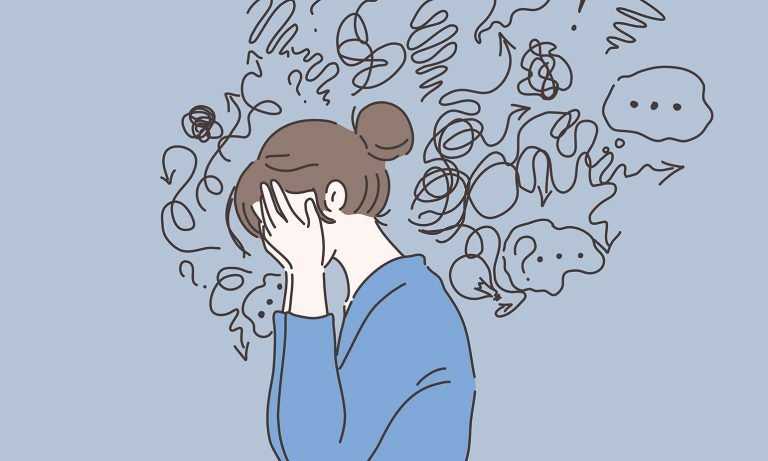Tips On The Treatment Of Anxiety Disorder

Anxiety which is a common experience today is characterized by feelings of fear, dread as well as uneasiness. It may cause you to sweat, feel agitated and tense, and have a racing heart.
It could be a normal stress reaction.
Sometimes, when confronted with a difficult problem at work, before taking a test, or before making a critical decision, one may tend to experience anxiety.
It may assist you in coping.
Anxiety may provide you with an energy boost or assist you in focusing.
However, for people suffering from anxiety disorders, the fear is not fleeting and can be overwhelming.

What are Anxiety Disorders?
Anxiety disorders are a type of mental illness. Anxiety makes getting through the day difficult.
Clinical signs include nervousness, panic, and fear, as well as sweating and a racing heart.
There are two major treatments for anxiety which are: medication and cognitive behavioral therapy. Your healthcare provider can create a treatment plan that is tailored to your specific needs.
How Does Panic Disorder Affect People?
Panic disorder is characterized by recurring panic attacks that occur for no apparent reason.
Panic attacks can be terrifying, especially the first time you have one. They are characterized by unexpected feelings of terror. These episodes can occur at any time, including while sleeping.
We all experience anxiety, worry, and fear from time to time.
These are common reactions to certain situations.
Let say you are concerned about a job interview or paying a bill on time for example. These feelings can make you aware of potential dangers and what you need to do in a difficult or dangerous situation.
This kind of response is known to be the 'fight' or 'flight' response.
So, most times people respond to a threat or danger by using the fight or flight kind of response. Here, your brain releases stress hormones such as adrenaline and cortisol.
Even if the threat isn't real, these hormones cause anxiety-like symptoms.
When the dangerous situation has passed, your body will usually function normally.
Why do people experience anxiety disorders?
Usually, it is very normal to be nervous about something that is concerned about for example: relocating, starting a new job, or taking a test.
While this type of anxiety is unpleasant, what it does most times is that motivates you to work harder and do a better job.
So take note that most ordinary anxiety is a passing feeling that does not interfere with your daily life.
But, in the case of an anxiety disorder, you may experience fear which usually affects your daily life. It is usually very intense at times and may even incapacitate a person.
If the anxiety is left unattended, it might become worse.
What are Anxiety and Panic Attacks?
Understand that anxiety attacks and panic attacks are two different types of anxiety disorders. Anxiety attacks usually occur without much notice and they also involve feelings of increased anxiety. But, panic attacks usually occur suddenly and also involve intense feelings of fear or an impending sense of doom that last for a short period of time.
What Are the Symptoms of Anxiety and Panic Attacks?
The symptoms of an anxiety attack don’t show up easily, rather it usually appears gradually. People who suffer from anxiety attacks frequently have a low baseline level of anxiety.
Anxiety attacks can cause the following symptoms:
- Excessive worry
- Restlessness
- Feeling on edge
- Fatigue
- Difficulty concentrating
- Irritability
- Muscle tension
- Being easily startled
- Increased heart rate
- Sleep problems
What are the types of anxiety disorders?
- Generalized anxiety disorder (GAD).
- Panic disorder.
- Phobias.
- Separation anxiety.
What is generalized anxiety disorder (GAD)?
You may experience extreme and unrealistic worry and tension if you have GAD, even if there is nothing to trigger these feelings.
Most days, you may be concerned about a variety of issues, including your health, work, school, and relationships.
You may have the impression that your anxiety is spreading from one thing to another.
Terror can strike suddenly and unexpectedly, or it can be triggered by an event, such as confronting a feared situation.
Panic attacks are similar to heart attacks.
If you suspect you're having a heart attack or if you have a heart attack, go to the emergency room.
It's best to err on the side of caution and have a medical professional examine you.
What are phobias?
When some have a phobia for something, they usually have extreme fears of that specific situations or objects. It could be a fear of snakes.
However, the level of fear frequently does not correspond to the situation.
Social anxiety disorder
This condition was previously referred to as social phobia by medical professionals. You may experience overwhelming anxiety and self-consciousness in everyday social situations.
You may be concerned that others will judge you, or that you will embarrass yourself or expose yourself to ridicule. People suffering from social anxiety disorder may completely avoid social situations.
Author Bio
This user has not submitted a user bio yet
Article Comments
No Comments!
At present there are zero comments on this article.
Why not be the first to make a comment?
Sponsor
Search Articles
Experts Column
Latest Articles
Featured Articles
Most Popular Articles












